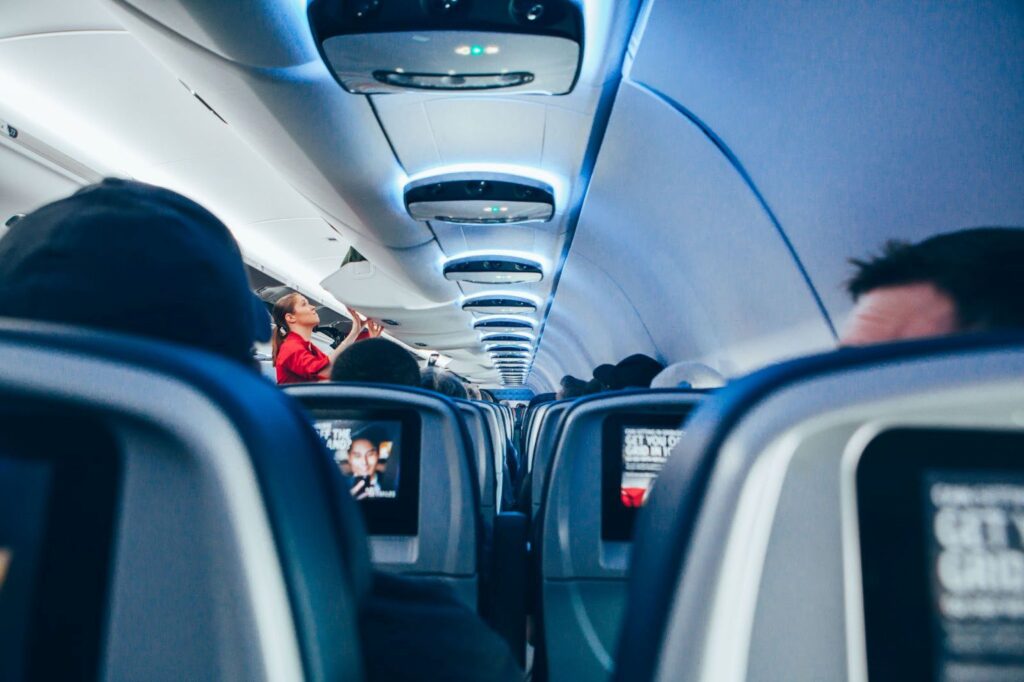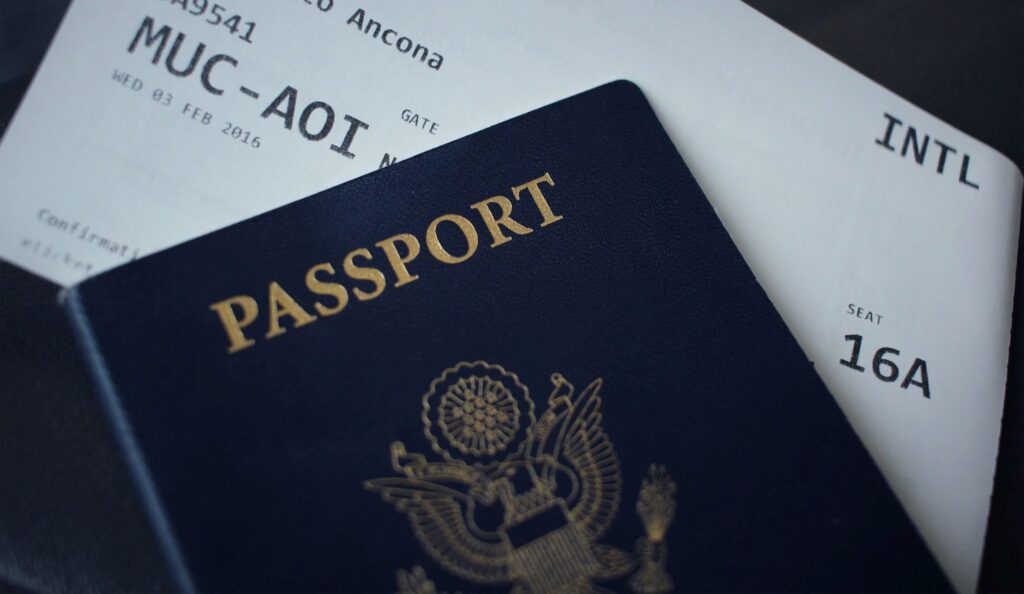Flight Insurance: 5 Reasons Why It’s A Good Idea
There are numerous flight insurance options available, so whether you’re flying with cash or miles, securing your trip in an unforeseen cancellation or delay can help you get your miles or money back. Knowing which type of coverage applies to your flight will allow you to make informed decisions about protecting your payment. This article covers all you should know about selecting the best flight insurance option.

What Exactly Is Flight Insurance?
The terminology associated with various types of travel insurance can be perplexing. To keep things simple, when we talk about flight insurance, we mean insurance that protects your nonrefundable flight that was paid for with cash or miles. There are several ways to safeguard your flight which include:
- All-inclusive travel insurance.
- Luxury travel credit cards.
- Add-on for airline trip insurance.
A comprehensive travel insurance policy will provide the most benefits, such as trip cancellation, trip delay, baggage loss, emergency medical, repatriation, and other services. Travel Guard, AAA, and Allianz are among the companies that offer comprehensive travel insurance plans. Also, check out american airlines travel insurance review to see which plan is best for you.
Premium travel cards can provide complimentary travel insurance protections similar to standalone travel insurance policies. Terms and conditions apply. However, the limits are usually lower, medical expenses are not always covered, and the entire trip must be charged on the same card to receive coverage.
When you pay for your flight (in cash or with miles), airlines also offer a flight insurance add-on; however, this coverage only applies to the flight; there are no medical benefits and no coverage for non-flight-related purchases for your trip).

Types of Travel Insurance Coverage
You can expect two common types of coverage for your flight, whether you get it through an all-inclusive travel insurance plan, perks from your premium credit card, or purchasing the add-on from the airline. Coverage amounts and limits will differ depending on the policy and credit card.
Trip cancellation protection
Trip cancellation insurance will compensate you for prepaid, non-refundable expenses if your flight is canceled for a covered reason. If a trip booked with points or miles from your premium credit card is canceled. Some providers will reimburse you in cash for the value of those points. Comprehensive policies and airline add-ons will typically reimburse you for the total cost of your flight, subject to policy maximums.

Trip delay insurance
Suppose you are delayed during a trip and incur expenses. As a result, this coverage kicks in. Each policy specifies the maximum reimbursement amount and the length of the delay required for the trip to qualify.
Assume you are going on vacation and have a connecting flight with a layover. An approaching snowstorm in the connecting city causes your flight to be delayed, and after hours of waiting in the airport, you learn that your next flight is delayed until the following morning. You now require a hotel room, dinner, toiletries, and breakfast the following morning. If you have trip delay coverage, you will be compensated for all of these expenses if the delay is longer than a certain number of hours and you stay within the daily monetary limit.
5 Reasons Why Flight Insurance Is a Good Investment
1. It Saves You Money On Unanticipated Medical Expenses
Regardless of how meticulously we plan, numerous things can go wrong while traveling, making us feel incredibly vulnerable while on foreign soil. This is where flight insurance comes in handy. It essentially provides coverage for medical emergencies on a cashless basis.
An all-inclusive travel insurance policy will cover minor out-of-pocket expenses and cover pre-existing ailments in the event of a life-threatening situation. In addition, there are plans to provide services such as medical evacuation or air ambulance and allow treatment to be completed in one’s home country after their return.
2. It’s Your Trusted Companion On Foreign Soil
A customer-service-oriented travel insurance policy that provides support for claims filed abroad, 24 hours a day, seven days a week, could be a companion who helps bridge communication barriers or locational constraints. A travel insurance plan ensures that they have a devoted team to support you in the occasion of a medical or travel-related emergency, no matter where they are.
It ensures immediate assistance, admission to a nearby hospital, whether for a medical evacuation, or guidance on how to reissue misplaced travel documents. The process is simple for the insured because customer service works directly with the local medical providers/authorities.

3. It Covers Third-party Damages And Personal Liabilities
In some cases, an emergency may cause damage to a third party – either an individual or their property – for which the insured must pay. Some travel insurance policies include a feature known as “Personal Liability,” which allows the insurance provider to cover the expenses of third-party damages.
4. It Helps You Regarding Emergencies Relating To Travel
Non-medical emergencies, such as a laptop, losing a passport, checked-in baggage, international driver’s license, or trip delays due to inclement weather, can occur at any time, resulting in a missed flight connection or unused hotel bookings. Many of these unanticipated events are covered by travel insurance policies. Some companies even offer visa fee reimbursement if the visa is denied. To deal with such situations more effectively, it is best to have travel insurance.
5. It’s An Obligatory Requirement
Few countries require immigrants or visitors to have travel insurance; you don’t want to arrive at the immigration counter and be told that your lack of insurance has barred you from entering the foreign land. Visa applications are sometimes rejected due to a lack of travel insurance records; therefore, before traveling abroad, find out if your destination country makes travel insurance necessary for visitors.
Conclusion
Now that we’ve covered the fundamentals, we can move on to the big question. Is it necessary to purchase travel insurance? Before deciding whether travel insurance is right for you, consider the following factors: cost, destination, and who is traveling.
If you can’t afford to lose the money you’ve invested in your trip, you should probably consider getting travel insurance. A travel protection plan could come in handy if you’re traveling a long distance, perhaps around the world, or to a remote location where the nearest hospital is many miles away. It’s impossible to predict what might happen to you or a traveling companion that could derail your plans, especially if you’re traveling with children or the elderly, who may be more vulnerable. Flight insurance can help you relax before and during your trip.
also read: Tips To Find Best Insurance Plan for Your Car







